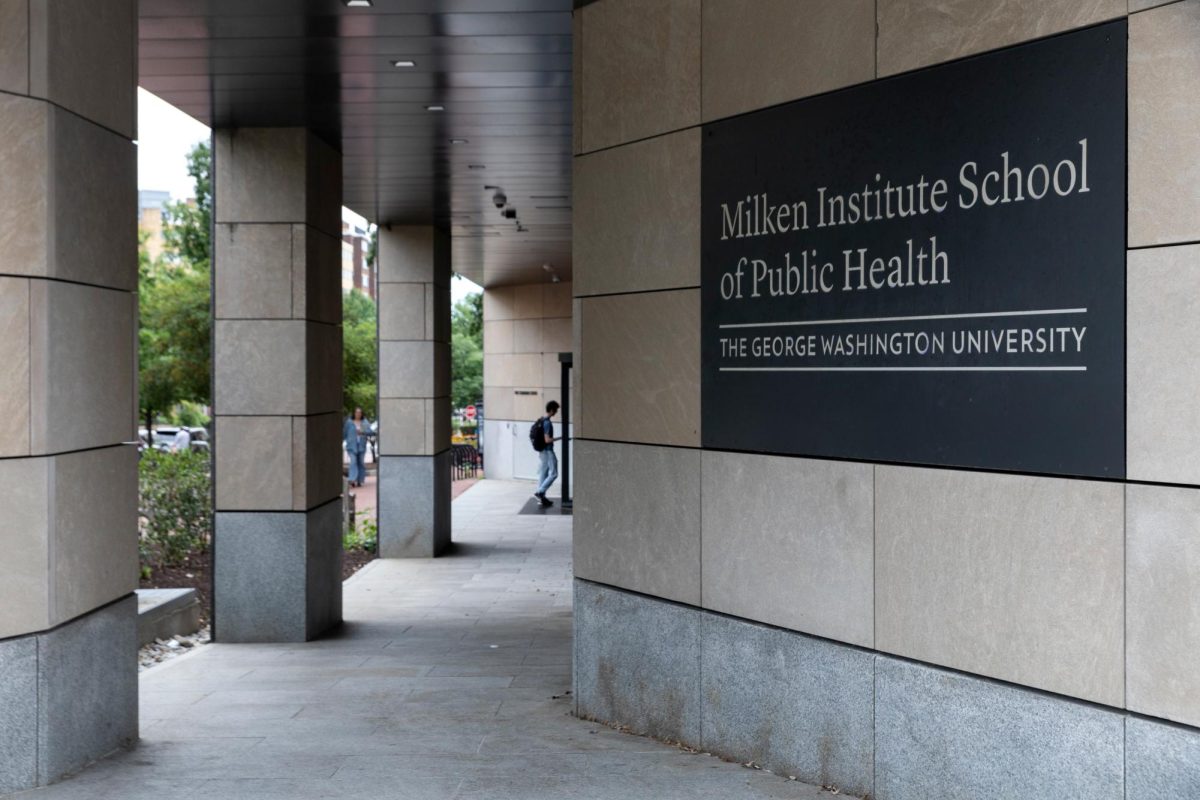
In the past, fraternities have served as voting blocks in the Student Association senate. But for years, there has not been one as staggering as the block Phi Kappa Psi created in the last election.
Six members of Phi Psi were elected to the senate, including Rob Lockwood (U-at-Large), Chris Pappas (CCAS-U), Chris Borchert (CCAS-U), Andrew Breest (SEAS-U), Patrick Hanley (ESIA-U) and Bryce Holman (SoB-U). Only one member of the Phi Psi fraternity, SA Executive Vice President Brand Kroeger, served on the senate this year.
These senators have created a caucus in the senate, according to SA members. Breest said he and the other five Phi Psi members are individuals and not part of a voting block.
“As for the notion that there is a ‘Phi Psi caucus,’ let me be the first to instill the fact in you that there is no such caucus,” said Breest, a freshman. “The other Phi Psi senators and myself are not Phi Psi senators. We are Undergraduate at Large, SoB, SEAS and CCAS senators who are going to work hard to represent our own individual constituencies.”
Kroeger, Lockwood, Borchert, Hanley and Holman would not comment despite numerous phone calls and e-mails from The Hatchet.
Executive Vice President-elect Kyle Boyer said he assured students that there will not be a Phi Psi caucus within the senate.
“(All of the Phi Psi’s) were elected very fairly,” said Boyer, a sophomore. “I don’t think there was a plot to take over the senate . I don’t think they are a caucus. I think they are a group of people from the same organization that were able to get elected.”
If the six Phi Psi members had worked together to get elected on a slate, they would have been violating election rules; it is illegal for more than two senators to run together as a group.
Joint Elections Committee Chair Ben Balter, a junior, said his committee would have investigated the situation if a complaint had been filed.
“There was no complaint filed (about a Phi Psi slate); however, if students felt disenfranchised and there was a complaint filed, we would have investigated it,” Balter said.
He added that if there is a Phi Psi caucus, his needs as a student would not be met.
“If these students formed a block within the senate, I personally, as a GW student, don’t think that that would most accurately represent my needs as a GW student,” Balter said.
In order to help combat factions in the senate, the body abolished the creation of slates during this past election cycle.
“Slates put too much power in the hands of a small group,” said senior and Sen. Nick D’Addario (U-At Large), in December.
Even with the abolition of campaign slates, coalitions within the senate have not been banned.
Sen. Matt Cohen (SoB-U) said senate factions are not unusual – especially in the beginning of the year – but generally do not last.
“You always have divisions (when the senate-elect first start to meet),” said Cohen, a senior. “During the middle of the first semester, groups break apart and all of that becomes irrelevant.”






